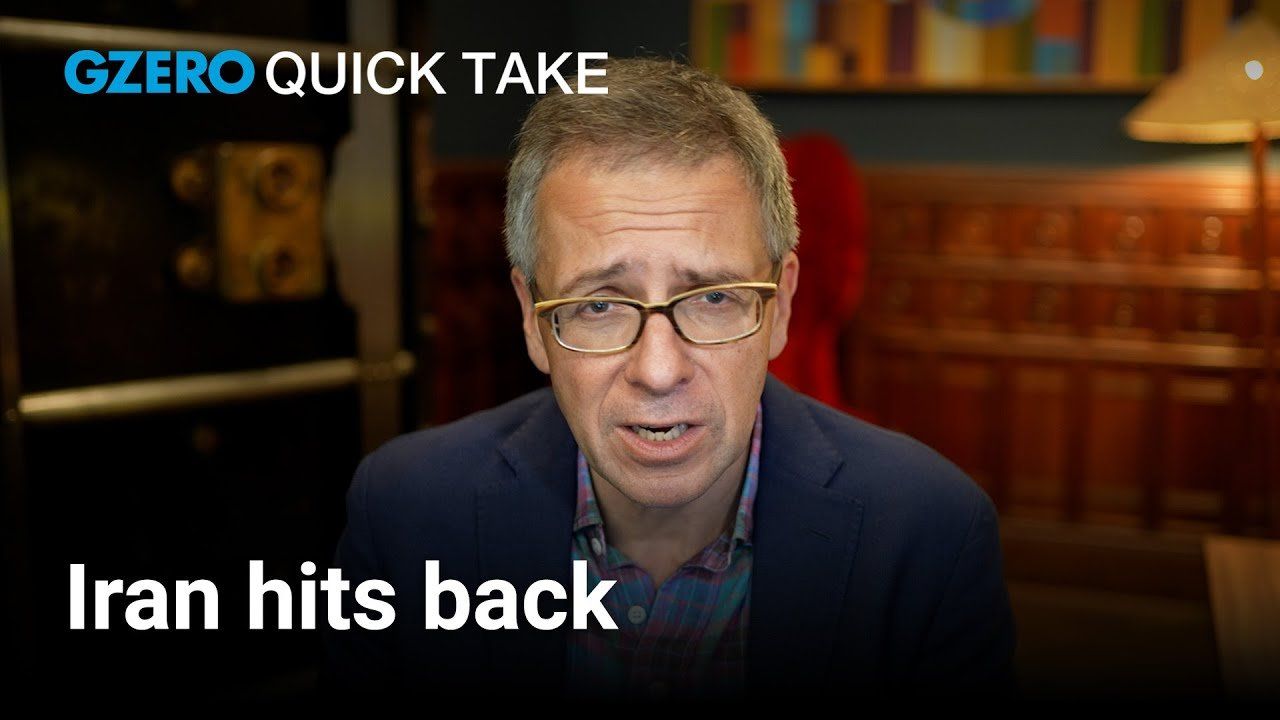June 23, 2025
In his latest Quick Take, Ian Bremmer unpacks Iran’s carefully calibrated retaliation against the United States after a major American strike on its nuclear program. Tehran launched missiles at a massive US base in Qatar, but warned Washington ahead of time, resulting in no casualties.
“It shows incredible weakness on the part of the Iranian government,” Ian notes, emphasizing the Islamic Republic’s desire to avoid provoking further US escalation.
Ian calls the moment “the biggest foreign policy win for President Trump” so far in his second term, as Iran appears increasingly isolated and risk averse. He also highlights how the regime's top leadership is in hiding, further hampering its ability to coordinate or negotiate.
While the immediate threat of escalation has eased, Ian still warns that “rogue actors” within Iran’s military still pose a risk. For now, though, oil prices are down and the region is holding its breath.
More For You
- YouTube
In this Quick Take, Ian Bremmer examines what may come next in the US-Israel war with Iran as the Trump administration signals significantly larger military operations ahead.
Most Popular
FILE PHOTO: Canadian Prime Minister Mark Carney and India's Prime Minister Narendra Modi shake hands before posing for a photo during the G7 Leaders' Summit in Kananaskis, in Alberta, Canada, June 17, 2025.
REUTERS/Amber Bracken/File Photo
Indian Prime Minister Narendra Modi and Canadian Prime Minister Mark Carney struck a series of deals during a meeting in New Delhi on Monday, including a 10-year nuclear energy deal under which Canada will provide India with uranium.
A satellite image shows black smoke rising and heavy damage at Iranian Supreme Leader Ayatollah Ali Khamenei's compound, following strikes by the United States and Israel in Tehran, Iran, on February 28, 2026.
Pleiades Neo (c) Airbus DS 2026/Handout via REUTERS
Supreme Leader Ali Khamenei is dead, the conflict is spreading, and US President Donald Trump still isn’t clear on who he wants to run Iran.
Shipping in the world’s most crucial oil chokepoint has nearly ground to a halt after at least four tankers were targeted in Iran’s retaliation to US and Israeli strikes on Saturday.
© 2025 GZERO Media. All Rights Reserved | A Eurasia Group media company.
